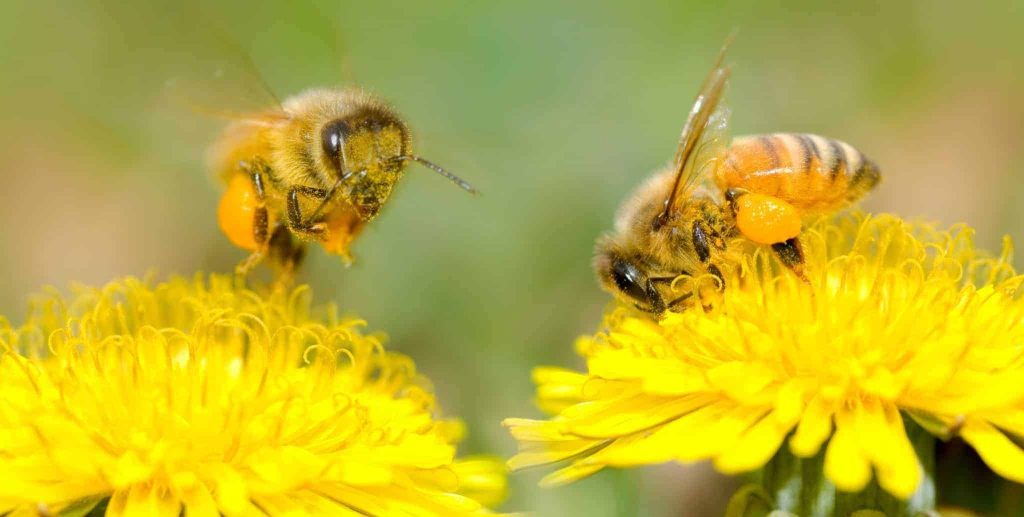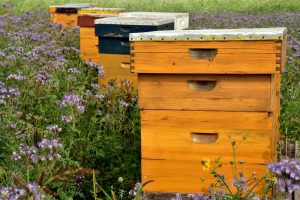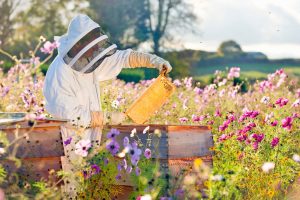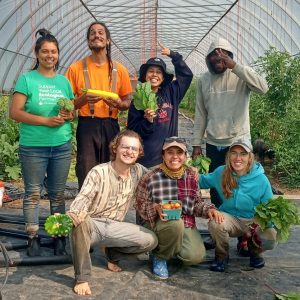What is the Importance of Pollinators?
Importance of Pollinators on the Farm
Pollinators are responsible for pollinating over 75% of the world's flowering plants, including many food crops that humans reply on. Without pollinators, the production of fruits, vegetables, and nuts would drastically decrease, leading to food shortages and increased food prices.
Farming Is Not Possible Without Pollinators
Although small, pollinators are responsible for the growth and vitality of whole ecosystems and the foundation of entire food webs which pollinators have been providing for millions of years. Pollinators of many different varieties play a critical role in agriculture. From bees, birds bats and a wide variety of insects, we depend on a diverse array of pollinators for our food.
In recent decades, pollinator numbers have taken a downturn as a result of habitat loss, climate change but mostly due to the exposure to chemicals. Regenerative farming practices offer a safe harbour for the small animals and insects that are responsible for three out of four fruit and nut producing crops across the globe.

What Makes Bees So Important?
- The efficiency of honeybees is due to the large number of forager bees in each colony, their physique, and their behaviour of foraging on only one plant species at one time.
- Some plants need several visits from bees to ensure that all the flower’s eggs are fertilized. If fertilization is inadequate because of lack of bees, not all seeds will develop and fruit shape will be poor and small.
- Studies have shown that many small bee species do not cross open areas. This is why hedges and verges play an important function as wildlife corridors.
- When enough bees are present in a forest, they provide better pollination, which leads to improved regeneration of trees and conservation of the forest’s biodiversity.
What are the Types of Pollinators
Bees are the most famous and most well known of all the pollinator species. Moths, flies, wasps, beetles, and butterflies are all on the list of critters we have to thank for pollination. There are even many vertebrate pollinators including bats and other mammals like some species of monkeys, rodents, lemurs, and tree squirrels. Birds such as hummingbirds, many songbirds and few parrot species are on the list as well.
Each of these pollinator species contribute to pollination in their own unique niche in the food web and rely on different plants for survival, making it crucial that we support pollinators by growing a diverse array of plant species to accommodate pollinator needs. The abundance and diversity of pollinators ensure the resiliency of plant communities. Strong plant and pollinator communities lead to better food security and nutrition.
What Crops Need Pollinators?
 All crops need pollinators. Once a crop blooms, meaning they flower, they must be pollinated in order to bear fruit. There are a few plant species that will self-pollinate. Pollination occurs through the action of either insects or small animals, which feed on the nectar in the flowers and transfer pollen among the plants they visit, or through the action of the wind dispersing pollen between plants.
All crops need pollinators. Once a crop blooms, meaning they flower, they must be pollinated in order to bear fruit. There are a few plant species that will self-pollinate. Pollination occurs through the action of either insects or small animals, which feed on the nectar in the flowers and transfer pollen among the plants they visit, or through the action of the wind dispersing pollen between plants.
Common monoculture grain crops like wheat, rice, barley, and oats are examples of plants that utilize the wind for pollination. The use of chemical fertilizers, herbicides and pesticides on these crops do not take into consideration the importance of pollinator species and therefore are big contributors to the decline in our global pollinator species.
Most monoculture crops like almonds, apples, hazelnuts, and pistachios all need pollinators to grow a successful harvest and do not depend on wind for successful fertilization. Pollinators are the highest contributors to crop yields worldwide.
Current State of Pollinators
Over the past few decades, many pollinators have experienced significant population declines. Wild and domestic bee populations have experienced the most severe decline. Bee numbers have suffered for a variety of reasons including wide use of pesticides, herbicides, fertilizers, climate change, disease, habitat loss as well as air pollution, chemtrails and cloud seeding.
Pollinators and Regenerative Agriculture
Regenerative farming has the potential to build resilient farm systems by restoring biodiversity to the landscape. Adding biodiversity to our food production system provides habitat for the many different species of pollinators that all contribute to their niche in the food web. Regenerative agriculture helps ensure we will have natural pollination services for many different types of plants, providing long term food security and economic stability in our farming systems. Restoring biodiversity to the landscape helps the 20,000 bee species have the opportunity to complete their life cycles—not to mention the thousands of other pollinator species. Bee colonies rely on a diverse food supply to produce honey, support the queen, and reproduce. Bees must be able to return to the hive and produce honey free of synthetic chemicals commonly used in conventional farming practices. Regenerative farming leaves out the harmful chemicals that disrupt the bee life cycle and increases flowering plant diversity.
Organic farming prohibits the use of chemical pesticides and herbicides which are a main cause of bee number and species loss. This offers bees and other pollinator’s safe havens from the stressors they experience elsewhere. Regenerative farming practices can go even further by providing underlying support to biodiversity in the farming landscape, giving bees and other pollinators an additional edge in keeping their populations healthy.
Pollination Is Crucial To Life on Earth
 Pollination is crucial to life on earth as we know it. Every year, we owe many of our crop harvests to the insects and small animals that carry pollen from one plant to the next. Honeybees are responsible for one out of every three mouthfuls of food in the American. Monoculture and conventional farming methods that incorporate the use of chemical fertilizers, herbicides and pesticides are the main cause of pollinator decline globally.
Pollination is crucial to life on earth as we know it. Every year, we owe many of our crop harvests to the insects and small animals that carry pollen from one plant to the next. Honeybees are responsible for one out of every three mouthfuls of food in the American. Monoculture and conventional farming methods that incorporate the use of chemical fertilizers, herbicides and pesticides are the main cause of pollinator decline globally.
How Can You Help Save the Bees and Pollinators?
- Support a local beekeeper.
- Donate to any of your local bee or pollinator associations.
- Donate and support international bee or pollinator associations.
- Become a beekeeper.
- Support organic, biodynamic, regenerative and sustainable farming, gardening and agricultural practices.
- Stop using chemical fertilizers, pesticides and herbicides.
Resources:
Farm Together
Agricology UK



